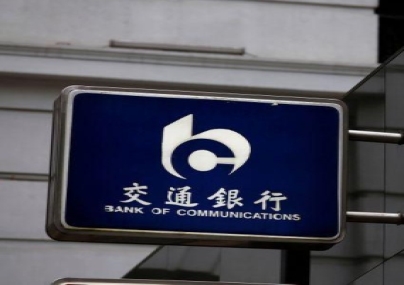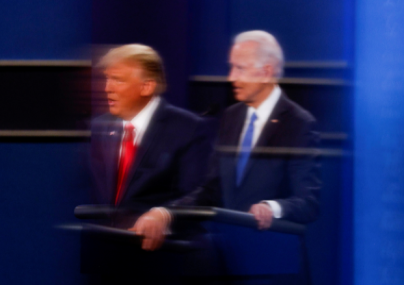2021年1月19日,美国商务部发布《确保信息和通信技术及服务供应链安全》的最新规则,旨在落实特朗普政府2019年曾发布的一份总统令中列明的相关要求,建立并完善“用于识别、评估和处理美国人与外国人之间涉及设计、开发、制造或提供信息和通信技术或服务的某些交易(包括交易类别)”的流程和程序。
据路透社报道,特朗普政府的原始总统令曾遭到不少美国企业高管的反对,他们认为,该临时规定赋予商务部“几乎不受限制的权力,干预美国公司与外国同业之间涉及技术的几乎任何商业交易”。
商务部发言人在一份声明中表示,将继续接受公众对该规定的反馈意见,直到3月22日生效。
新规则对中国科技公司意味着什么?
金诚同达律师事务所高级合伙人沈姿英律师指出,该规定对于信息和通信技术及服务的类别规定非常宽泛且全面,并且将中国明确列为“外国对手”。因此,未来中国科技公司任何涉及信息和通信技术及服务产品的涉美交易,都有可能被纳入该规定的管辖范围之内。
此外,金诚同达高级合伙人彭俊律师还表示:“该规定赋予了美国商务部强大的监管权力。”美国商务部长有权禁止其认定的任何可能具有风险的涉及信息和通信技术及服务产品的交易,或要求交易方采取缓解措施。这些监管不仅会影响中国科技公司与美国公司之间直接进行的交易,还会影响中国科技公司对关键技术的应用,进而影响中国公司在美国市场上使用某些供应商的能力。
中国科技公司现阶段可做哪些准备?
沈律师和彭律师给中国科技公司提出了四点建议:
1. 建议持续关注该规定的进展。目前该规定仍处于征求意见阶段,尚未生效,相关方可在2021年3月22日或之前提交意见;
2. 对于公司现有美国客户,建议公司与保持密切沟通,建议借助美国合作伙伴的影响力,开展游说、提出异议,争取在法规层面最大限度降低影响;
3. 对于潜在美国客户,尽量避免与有美国政府背景的客户合作,避免接触客户的敏感数据,谨慎行事,降低风险。
4. 评估公司目前交易所涉及的设备、软件和技术是否以及在何种程度上落入该规定的管辖范围内,并提前做好交易被审查的准备,在日常交易过程中注意相关材料和证据的留存。
Lawyers’ Comments: What can Chinese tech companies do facing the U.S. Commerce Department’s new interim final regulations targeting foreign tech supply chain?
On Jan. 19 this year, the U.S. Department of Commerce issued interim final regulations implementing the Trump-era Executive Order 13873 on Securing the Information and Communications Technology Services Supply Chain. The interim final regulations intend to build a review mechanism that focuses on transactions involving any acquisition, importation, transfer, installation, dealing in, or use of information and communication technology services (ICTS) that has been designed, developed, manufactured, or supplied by parties owned by, controlled by, or subject to the jurisdiction or direction of foreign adversaries. A Commerce spokeswoman said in a statement the department would continue to accept public comment on the rule until March 22, when it would go into effect.
What does the rule mean to Chinese technology companies?
Shen Ziying, senior partners at Jincheng Tongda & Neal, says that the interim rule defines a broad scope for the categories of ICTS, and it specifically identifies China (including Hong Kong SAR) as one of the six foreign adversaries, the other five being Cuba, Iran, North Korea, Russia, and Venezuela’s President Nicolás Maduro. Therefore, any U.S.-China transactions involving ICTS products or services are likely to fall under the scope of this rule.
Peng Jun, senior partner at Jingcheng Tongda & Neal, also says that the interim rule gives the Commerce Department “great power.” Under this rule, Commerce will have the authority to determine whether a transaction poses an “undue and unacceptable risk.” and whether to prohibit the transaction or propose mitigation measures. The interim rule will not only directly affect Chinese technology companies doing business with U.S. partners, but also limit their application of key technologies, hence weakening their ability to employ certain suppliers in the U.S. market.
What can Chinese technology companies do?
Facing a tougher “doorman,” can Chinese technology companies still have entry into the club? Here are four pieces of advice from Shen and Peng:
(1) Affected Chinese technology companies should keep themselves updated and submit their comments as the Interim Rule is accepting public comments until Mar.22.
(2) Chinese technology companies should maintain active communication with their existing U.S. business partners, whose influence may be able to help in lobbying to reduce the impact of the rule.
(3) Avoid doing business with potential U.S. partners that have connections with the U.S. government, and avoid access to sensitive data thereof.
(4) Evaluate the devices, software and technologies involved in ongoing transactions to see if they fall under the scope of review, and make preparations for the review beforehand. Relevant materials and evidence from the transaction should be carefully kept.


